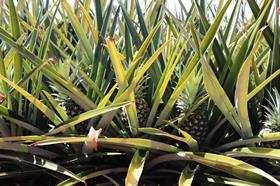
Indonesia faces a number of challenges including high prices and strong competition as it aspires to increase its agricultural exports to Japan.
According to a report from the Jakarta Post, Indonesia is seeking to expand its access to Japan by renegotiation the Indonesia-Japan Economic Partnership Agreement (IJEPA).
It said there is a particular focus on increasing market access and reviewing Japan’s tariff rate quotas for Indonesia’s agricultural products as some categories are currently uncompetitive.
In a discussion held by the Indonesian Trade Promotion Center Osaka, Katsunari Kasuga, president of Japanese importer Nanyang Trading, said the price of Indonesian horticultural products was much higher than those of neighbouring countries such as Thailand and Vietnam because of high production costs and small production scale.
Despite the fact the IJEPA exempts fruit products including bananas and pineapples from tariffs, within determined quotas, Indonesia’s market share remains small.
The Jakarta Post report said data from Indonesia’s Ministry of Trade shows Indonesia exported US$30m worth of horticultural products to Japan in 2019, accounting for only 0.46 per cent of Japan’s US$5.79bn horticultural imports.
Katsunari said there might opportunity to be found in the rising number of migrant workers moving to Japan, although this could be delayed for a number of years because of Covid-19.
“Indonesian green peppers are usually marketed toward South-East Asian migrants, while banana blossoms are widely consumed by migrants from the Philippines and South America,” Katsunari said.
Despite this downturn, Arif Wibisono, trade attaché of the Indonesian Embassy in Tokyo, said increasing access to the Japanese market had wider implications.
“If you can get your product into Japan’s market, it is easier to market your product in other countries as it already meets Japan’s high standards,” said Wibisono.



